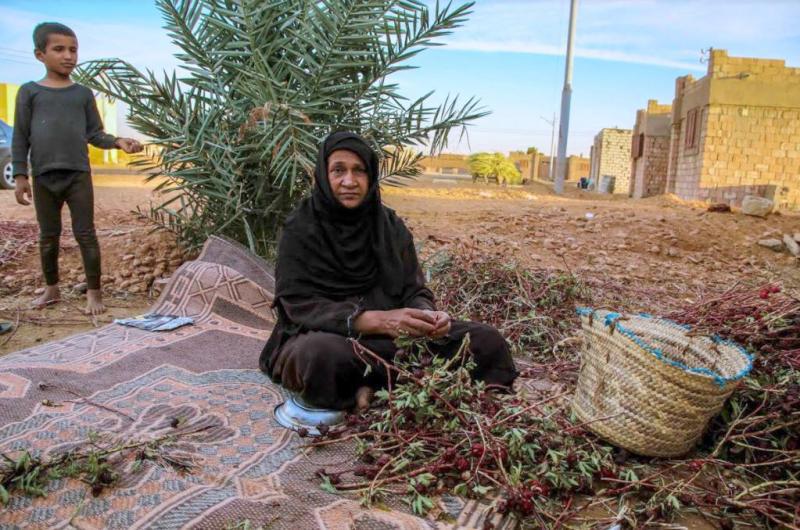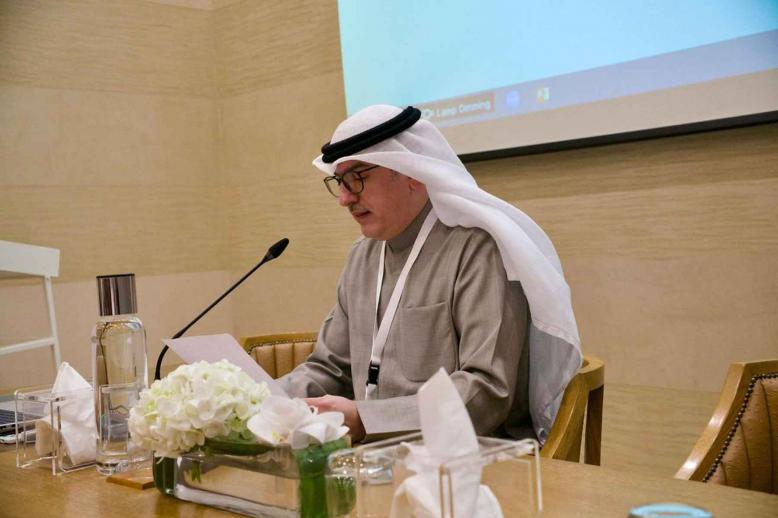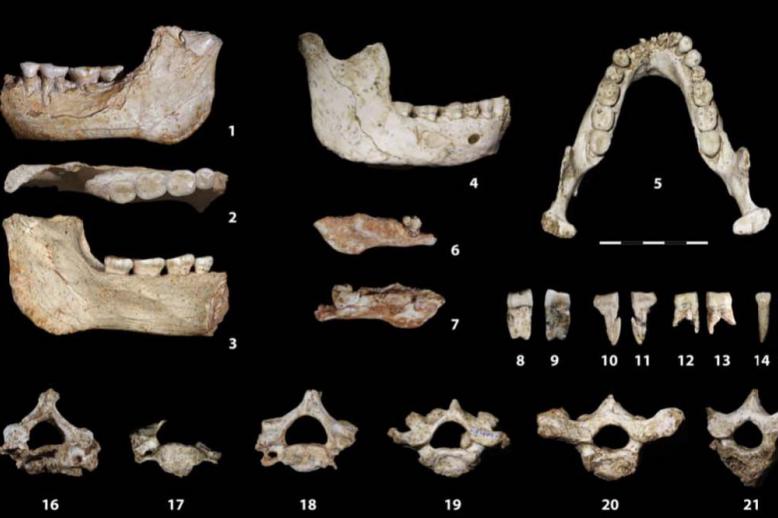It takes a village in Egypt to show women’s heroism
AL SAMAHA, Egypt - A l Samaha is a village that knows no rest or despair. The farms, the plants that flutter in the air and the primitive farming machines tell of unrelenting toil and hope.
The women of Al Samaha in Egypt’s southern province of Aswan are self-dependent and do not rely on outside or male support to feed its residents or their children.
It is a women’s world but one in which things many modern women might consider to be necessities — makeup, perfume, hair dye, manicures, high heels and sunglasses — are unheard of. Al Samaha’s residents know nothing but work.
“We will not eat if we do not work,” said Sanaa Nour, a mother of four and one of 300 homeowners in the village. “Work is the central part of our life here in the village.”
Al Samaha was founded in 1988 by the government of former President Hosni Mubarak as a gathering point for single mothers — women who lost their husbands because of death or divorce. It was part of a project to create six rural communities 120km north of the city of Aswan.
The project was the first rural community whose economy would be the sole responsibility of its women residents. Each of the women living in the village is given a home and 2 hectares of land to cultivate.
The homes have two rooms, a kitchen, a toilet and space for raising domesticated animals and fowl, such as goats, cows, sheep and chickens.
Village residents are free to grow the crops they want, except for sugar cane, which is grown in abundance in Aswan.
In male-dominated Egypt, Al Samaha is very different but it is a place that evokes all meanings about women’s bravery, heroism and perseverance.
Nour, 46, moved into the village several years ago after her husband died. She worked in farming with her husband before she moved to the village. She wakes early in the morning, heads to the farm, which is not far from her home, works in the field all day and returns before sunset to prepare food for her children.
Nour grows rice and wheat. She keeps most of the produce for the family but sells surpluses in the market. She raises fowl to feed her children.
“Life is good,” she said. “There are ups and downs, of course, but we have to keep moving.”
Life in Al Samaha is very austere. Apart from the small clinic and school in the village, there are no other facilities. The homes are very small and the streets and alleyways of the village are dusty. The facades of the homes are rarely painted.
However, each home holds stories of women’s bravery and sacrifice.
Nabiha Abdullah, a mother of five in her early 60s, had a harsh life after her husband died about 15 years ago. She worked to feed her children but it was far from easy. When she heard about the village, she quickly decided to move and start a new chapter.
Abdullah said she was afraid at first because the village was mainly a desert. “I worked in the field together with my children and then things started to improve day after day,” Abdullah said. “I cannot say life is bright. It is full of
difficulties, in fact.”
Not all those in the village are succeeding. Some could not put up with hard work. Others left a few months after they arrived.
The village has its tough rules. Women given homes and plots of land must remain single, said Hamdi al-Kashef, the Agriculture Ministry official supervising the project.
“When the children of those widowed women grow up and get married, they have to move outside the village as well,” Kashef said.
Problems have been accumulating in Al Samaha for years. Some of the plots are not fit for farming because of high salinity. The only clinic and only school in the village are not functioning well because of the lack of staff or poor maintenance.
Nevertheless, the village residents deal with their problems, sometimes by cracking jokes and other times by being patient.
“Each woman living here has her own problems that seem insurmountable,” Abdullah said, “but when we discuss them, we discover that our problems are lighter than those of other women.”
Ahmed Meghid is an Egyptian reporter based in Cairo.
This article was originally published in The Arab Weekly.







